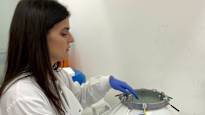The patient’s biological samples provide information about his susceptibility to, for example, cancer. Individual treatment for the disease can be developed at an early stage.
Solutions to the cost-cutting pressures in health care and the health care of an aging population are being sought around the world from, among other things, biomedicine.
In 2013, a new biobank law came into force in Finland, which opens the sample material of biobanks to international research. With the support of the government, foreign investments are also aimed at this.
Portugal, on the other hand, was among the first to start biobanking in Europe. The first registry was established in Lisbon in 1995.
See five key questions and answers about biobanks in this article.
1. What are biobanks?
In Finland, biobanks have collected biological samples, such as blood, tissue, saliva and excrement samples, voluntarily given by about half a million Finns. The data in the samples can be combined with the health data in the patient information systems.
There is a network of 11 biobanks operating in Finland. The collaboration includes universities, the Blood Service, the Institute of Health and Welfare and welfare areas.
2. How can samples be used?
The samples can be used to determine an individual’s susceptibility to various diseases, such as cancer. The information obtained from the samples enables the development of individual treatment if the disease can be identified at an early stage. For example, in breast cancer, the breasts can be removed in certain cases before the disease spreads.
In Portugal, samples from biobanks were useful in defeating the corona pandemic. This is what the director of the Portuguese IMM research institute and biobank says Sergio Dias on video:
3. Why is Finland interesting?
The isolated geographic location behind the Gulf of Finland makes the heritage of Finns a unique research material.
Disease-causing agents that are rare elsewhere have enriched the Finnish population due to the remote location.
In 2023, the genomic data of every tenth Finn was stored in Finnish biobanks. The data is under strict protection and widely available to researchers in the Fingenius service.
Finns have cooperated with, among others, Estonian and British universities. In total, there has been interest from thirteen countries so far.
Foreign investments are sought in the field. The research and development work related to biobanking has even caught a glimpse of a new Nokia, like the Novo Nordisk company that boosts the Danish economy with diet pills.
4. Why has the data protection of biobanks raised concerns?
According to the Biobank Act, the collection of samples in the biobank requires the written consent of the sample provider, and written approval for attaching health information to the samples. Both can be given with the same consent form. You also have the right to refuse biobanking.
In Iceland, biobanking faced headwinds as a result of the economic crisis at the end of the 2000s.
An American company bought the bankrupt Icelandic company deCode Genetics in 2009, reported, among others, The Guardian magazine. The company’s register contained sample data of 140,000 Icelanders.
In Iceland, there has been discussion, among other things, about the ethics of medicine and the uncontrolled use of public data registers for commercial purposes. According to representatives of biobanks, Icelandic legislation has improved in less than twenty years.
5. Why is Africa interesting?
Africa’s genetic heritage is the most diverse in the world, but so far little is known about it. The healthcare challenges of a continent with a growing population are great, and it is hoped that biomedicine will provide solutions to them as well. For example, the studies find out why cancer, which is common in Western countries, is rarer in African countries.
Portugal is building a biobank network in cooperation with its former colonies. Research centers are being established in Angola, Brazil, Cape Verde and Mozambique, among others. Researchers are trained in Portugal and continue to train in their home countries.
Hear more about biobanks from the Everyday World Politics program:
The leaders of the Lisbon-based IMM research institute have been interviewed for the story Sergio Dias and Ângela AfonsoaHUS-Syöpäkeskus breast surgery line manager and senior physician Tuomo Meretojaaprofessor of oncology at the University of Helsinki Kimmo Porkka, CEO of FINBB Marco Hautalahti and the data protection officer Anu from Talu.
